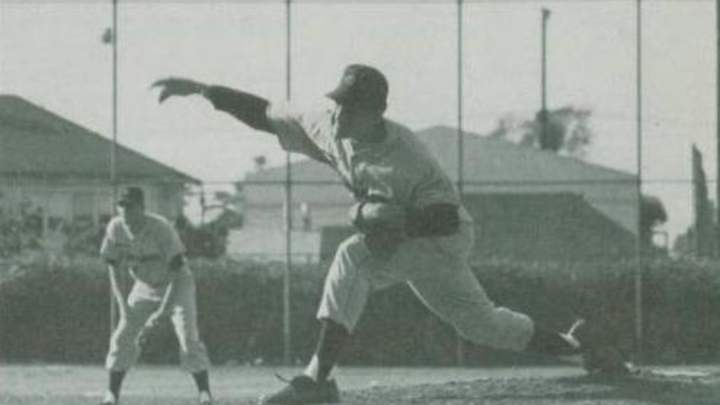Morning Buzz: Remembering Tom Seaver's Time At USC
Baseball star went 10-2 in only season in 1965

With Tom Seaver passing away Monday, here's some things you may or may not know about the former star pitcher from his USC days.
- USC baseball coach Rod Dedeaux discovered Seaver playing in Alaska. The only other school that really recruited Seaver, a junior-college transfer, was Fresno State.
- Seaver was the Trojans’ No. 3 pitcher his sophomore season but then his fast ball increased from around 85 mph to 91 mph.
- He loved to play bridge at USC and his main hangout was the 901 Club, which in those days was on Jefferson Blvd. and known for its hamburgers and beer.
- Seaver was 10-2 with a 2.47 ERA in 1965 for USC in his only season as a sophomore. The Dodgers drafted Seaver in the 10th round of the MLB draft but refused to meet Seaver's counter-offer of $70,000.
The Dodger scout who dealt with Seaver was Tommy Lasorda, who seemed to spend plenty of time in those days trying to steal players from USC.
- In 1966, baseball held a winter draft that was during the college baseball season and Seaver was drafted by the Atlanta Braves. Dedeaux called commissioner William Eckert, who said not to let Seaver sign so he could keep pitching at USC.
- That night, USC could not reach Seaver, who left his phone off the hook after he reached an agreement with the Braves.
- Atlanta was going to tear up the contract so Seaver could finish the season with USC but athletic director Jess Hill contacted the NCAA and was told USC must declare Seaver ineligible. Hill complied, no doubt worried about crossing the NCAA, which had given USC sanctions in 1959.
- Eckert nullified the Braves contract and three teams (Indians, Phillies, Mets) agreed to match Atlanta’s contract for Seaver. The Mets won a drawing and Seaver signed for a $50,000 signing bonus.
- The entire saga probably cost USC the 1966 College World Series title.
- Seaver eventually returned to USC and in 1974 got his communications degree.
- From baseball analyst Bill James: "There is actually a good argument Tom Seaver should be regarded as the greatest pitcher of all time ... Seaver pitched for eight losing teams, several of them really terrible, and four other teams which had losing records except when Seaver was on the mound."
Tom Seaver's scouting report while he was pitching for @USC_Baseball in 1965: "Plenty of desire to pitch and wants to beat you." No truer words were ever spoken about the future @BaseballHall of Fame pitcher. Who was that scout? #Dodgers coach Tommy Lasorda. pic.twitter.com/Ot4UQodYWR
— SABR (@sabr) September 3, 2020
